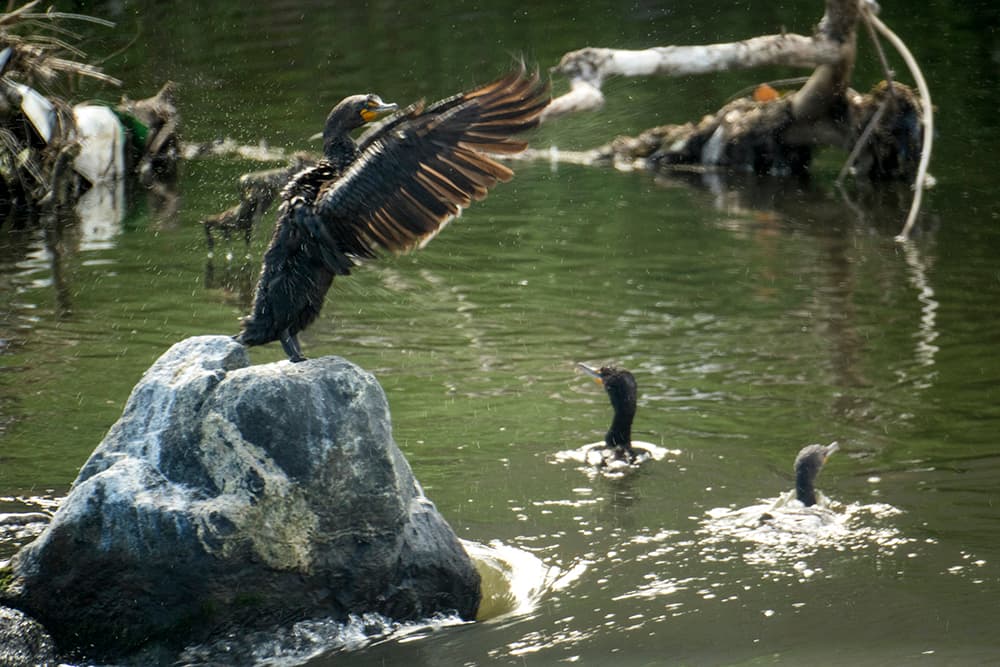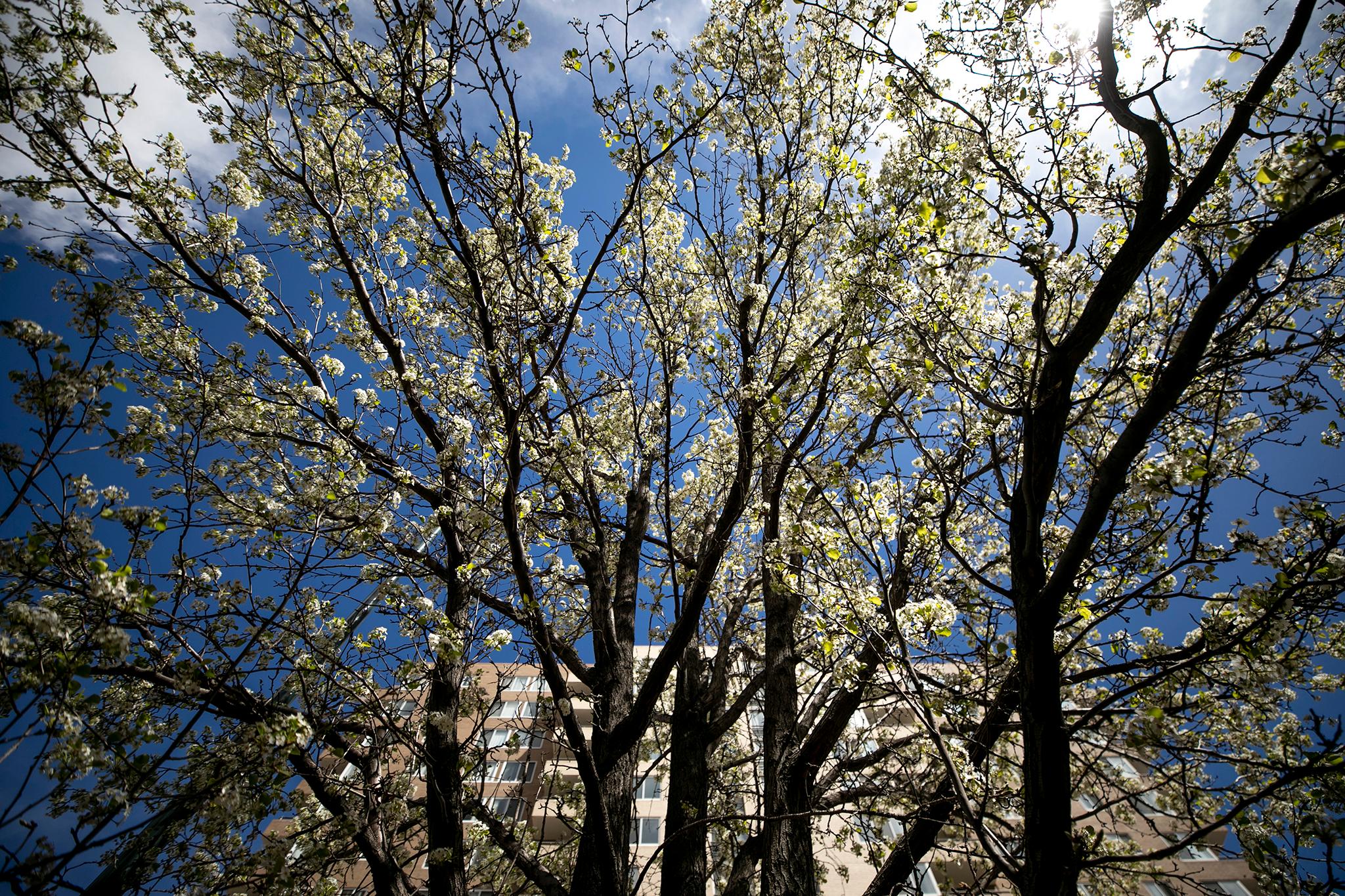
The South Platte River might look a lot different without people like Kelly Uhing. As Denver's city naturalist, her daily charge is to protect the city's flora. Along the river here, that means a corridor of native bushes and grasses which shelter the city's many animals.
Her job is supposed to center around killing invasive weeds. Instead, she's fighting against symptoms of larger struggles we see playing out all over the city.
While many groups work separately to ease tensions caused by rapid development, a lack of affordable housing and rising drug use, a few small city departments must deal with these issues all at once — and each has inevitably seeped into the river.
It's a hot morning on the South Platte and Uhing, in waders, sloshes around in it.

“Sometimes we feel like we’re kids again,” she says, clearly in her element.
Today Uhing and her assistant Scott are hunting the noxious purple loosestrife. It's important work, she says, because the species, while beautiful, would choke native plants like the coyote willow that give animals a place to exist amid Denver's urban landscape.

She stomps into the bushes after a flowered weed when she discovers signs of another resident of this ecosystem: humans.
Suddenly, Uhing is on high alert. It wasn't long ago, she says, that she had some scary encounters with illegal campers who were startled by her sudden appearance. Since then, nobody comes down here alone.
Denver's ongoing struggle to provide affordable housing and shelter its homeless population has worked its way to the South Platte. People in need of a place to sleep find space along the river here. When they settle in, they often flatten the native plants that Uhing is charged to protect.
"Native vegetation is having a hard enough time surviving with the noxious weed species that are around it," she says, heading for another weed to kill. "To have human impact, it's even tougher for them to thrive."

Rising heroin use has also filtered into Uhing's realm. Avoiding needles, she says, is a daily exercise. Her staff must constantly be on the lookout to protect their own well being.
“I don’t want to have to talk to their mothers if something were to happen,” she says, only half joking. “They’ve seen a lot. They’ve seen a suicide.”

To the informed observer, the river contains all kinds of societal residue.
Each month, Denver Department of Environmental Health administrator Jon Novick and his team samples water across the city to keep tabs on potentially harmful compounds. His monitoring dovetails with Denver Public Works' street sweeping crews as they work together to make sure pollution from Denver's many construction sites and cars don't wash into storm drains.
"People put out their trash, change their oil, rake their leaves and cut their grass," Novick says, "all that stuff goes down into the storm sewers and go directly into the rivers without treatment."
In 2016 Public Works collected enough of this roadside pollution to fill Coors Field 9 feet deep. That mass of solid waste has nearly doubled since 2012, a trend that seems to mirror Denver's massive growth over that time. While the department is always working to improve their collection methods, there's no doubt that some of that stuff makes it into the watershed.

Novick is most concerned about E. coli levels, which can be attributed to goose poop and similar, uh, human-produced material. There's literature that suggests, he says, a possible link between the amount of impervious surfaces in a city (think concrete) and E. coli prevalence.
"Downtown Denver’s really densifying," he says. In parallel, "It’s clear that the E. coli levels are starting to increase."
Indeed, the advocacy group Conservation Colorado gave the South Platte a "C" rating this month on their rivers report card, in part due to excess nitrogen and phosphorus sourced within city limits. Their main concern: the uniquely high demand for this resource.
Back on the river, Kelly Uhing seems exasperated by the sheer quantity of challenges surrounding her native plants.
“Were almost up against all the odds. As long as we don’t look at the big picture too much," she trails off, gazing down the river. "That’s what wine is for I guess.”



















